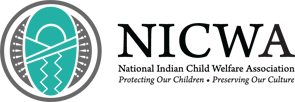Media Contact
media@nicwa.org
“Since our inception, NICWA has advocated for Native children and families to have access to community-based, culturally appropriate services. Navigating the child welfare system is no exception,” said NICWA Executive Director Sarah Kastelic. “When families are under investigation for child maltreatment or even just interacting with a caseworker who has tremendous authority to impact the outcome of their case, it can be incredibly stressful. Parents may not feel comfortable asking questions of their caseworker and likely do not know how best to advocate for their family. This new online resource is a critical tool to empower parents with information in the moment that they need it, helping them better navigate the system, and ultimately keeping Native children safely with their families and connected to their community and culture when possible.”
This resource was developed as an extension of NICWA’s Request for Information (RFI) program to provide more front-end help for families who encounter the child welfare system before the point of crisis. Through the RFI program, NICWA staff provide compassionate telephone support and resource materials for families, relatives, and community members to help them navigate the child welfare system, access meaningful services, and advocate for their relatives. Requests for information range from everyday questions about ICWA best practice to urgent requests related to adoption or parental rights court hearings.
The new resource is a quick reference tool to help families navigate the child welfare system including information on:
- What the child welfare system is responsible for and how it works
- Additional protections for American Indian and Alaska Native children under the Indian Child Welfare Act
- How to prepare for a home visit from a child protective services investigator with additional resources on families’ rights during an investigation
- Barriers that an American Indian or Alaska Native parent may experience, and much more.
Access it online at: http://bit.ly/ChildWelfareResource
Included in the resource are two downloadable images for digital or print distribution.
# # #
About NICWA: The National Indian Child Welfare Association (NICWA) works to support the safety, health, and spiritual strength of Native children along the broad continuum of their lives. NICWA promotes building tribal capacity to prevent child abuse and neglect through positive systems change at the state, federal, and tribal level. For more information, visit www.nicwa.org.
